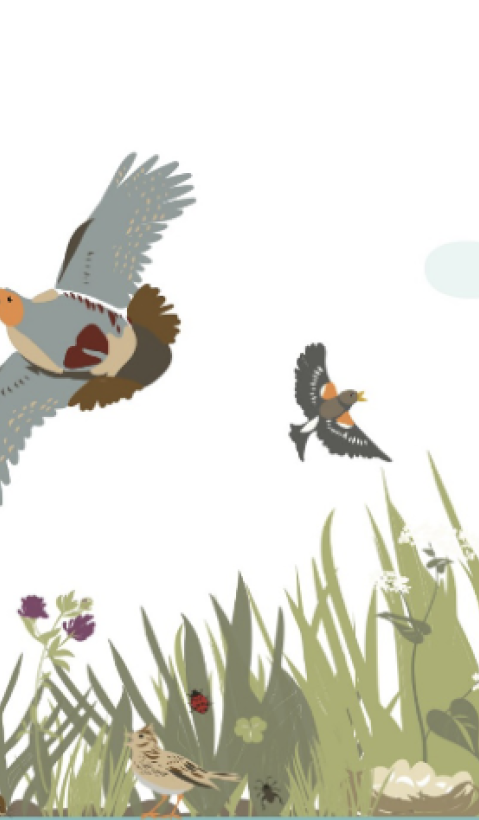
New solutions to help reverse Europe’s biodiversity and pollinator crisis on farmland
| Date |
Date
-
|
| Time |
Time
May 30, 2023 at 10 AM CEST
|
| Location |
Location
Online and Comité of the Regions, Room JDE52 for main event and Atrium 5 for your lunch Rue Belliard/Belliardstraat 101, B-1040 Bruxelles/Brussel
|
On 30 May at 10AM, two NSR Interreg projects are organising an event on solutions to work towards the recovery of farmland biodiversity and improve crop pollination (hybrid event).
In 2020, the European Commission launched the Biodiversity strategy for 2030 (europa.eu), after the previous 2020 strategy failed to deliver on all farmland targets. The new strategy aims to correct this, but because success is directly linked to the Common Agricultural Policy (europa.eu), targets may again be missed. Meanwhile, reduced crop pollination is negatively affecting yields on Europe’s farms, caused by diminishing pollinator numbers, especially bees.
Agri-environmental schemes (AES) play a key role in helping to achieve the EU’s biodiversity targets and increase crop yields, but they face many challenges. Based on the results and lessons learnt of two North Sea Region Interreg projects, PARTRIDGE and BEESPOKE, participants of this event will be presented with a set of clear suggestions and solutions on how future AES’ should be designed to help address the EU’s nature and yield deficits on farmland.
The PARTRIDGE, Interreg VB North Sea Region Programme demonstrated how biodiversity on arable farmland can be increased, while a large-scale online survey provided practical answers on how-to-improve-ae-scheme-uptake-and-provision_key-messages-for-policy-influencers.pdf (northsearegion.eu).
The BEESPOKE, Interreg VB North Sea Region Programme showed how levels of insect pollinators and crop pollination can be increased at local and landscape scales by providing land managers and policy makers with new expertise, tools and financial knowledge to create more sustainable and resilient agroecosystems.
